The views expressed in our content reflect individual perspectives and do not represent the authoritative views of the Baha'i Faith.
If you are ever in the KwaZulu-Natal Midlands, visit Mpophomeni Township, where, ascending a short road up a hill in west end of the township, you will see maybe ten houses in all before you come to the uMngeni Baha’i Centre – our first permanent centre.
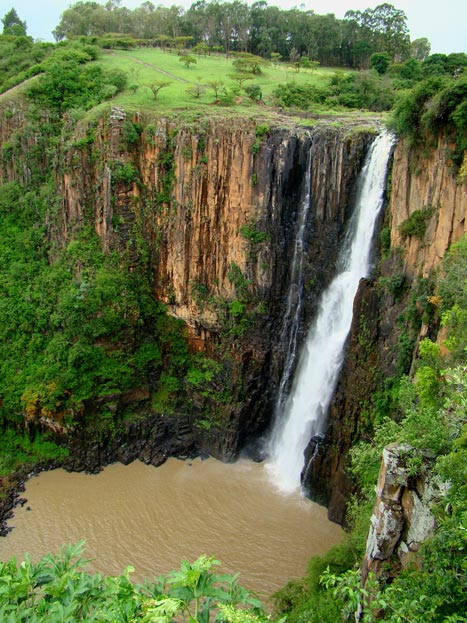
After the 1994 elections, Mpophomeni was joined with the small town of Howick to form the uMngeni Municipality. Mpophomeni means “the place of the waterfall,” taking its name from the famous 300-foot high Howick waterfall. A picturesque little tourist town, Howick is also famous for being the place where Nelson Mandela was captured in 1962.
Mpophomeni, like so many South African townships, has a mix of economies (mostly lower income), but filled with earnest people who hope and work for a better life. The South African government built Mpophomeni in an open field in 1968, so they could relocate the black people living along the uMngeni River to build Midmar Dam which provides water to much of the province.
Divided by political strife between two rival parties, Mpophomeni found itself very much caught up in the provincial ’civil war’ in the 1980s and grew to become one of the most dangerous townships in the country. More recently, plain gang thuggery here culminated in the brutal rape and murder of an eight-year-old girl. The pioneers who opened the now 200 plus member community in uMngeni have known her mother since shortly after arriving in the area in 1996; they knew the young girl from birth, and they often visited in each other’s homes.
This terrible act galvanized the community. Although the girl’s mother never formally became a Baha’i, she has always been very warm towards the Baha’is. When the Baha’i community was first getting established, she was often the host of Baha’i activities. After the murder of her child, Mpophomeni woke up and realised it needed, as a community, to put an end to its endemic gang violence. While the initial response to the murder was retributive, eventually it settled into making the area safe through community policing fora. For the most part, it worked.
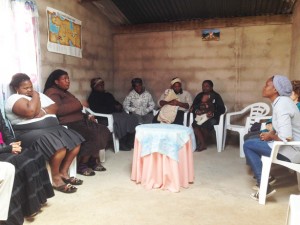
But even given the dampening of the majority of the violence, the community is fairly stagnant socially and economically. Church on Sunday morning is forgotten by the time afternoon sports commences (live and on TV). This empty ritualistic cycle breeds stagnation.
About two weeks ago, the Spiritual Assembly of the Baha’i of uMngeni (first formed in 1998) decided that they should take some initiative in building unity among the households on the street where the Centre is situated, as a start to set an example of the power of collective unified action. So we started simple, and invited the neighbours to have tea and chat. One never knows how these things will work out. The morning of our gathering dawned wet and cold and rainy, favouring a low turnout. But by the appointed hour, the sky cleared and at 2:30pm, eight of our neighbours arrived–all women–plus the handful of kids that are always there.
Local Spiritual Assembly member, Philile Gumede (in the grey knitted cap here in the photo), who learned of the Faith in children’s classes held in Mpophomeni in the 1990s, chaired the meeting and introduced everyone to the basic teachings of the Baha’i Faith. She explained the Baha’i community-building programme, which centres around the spiritual education of children and youth, and received a great response from all the guests. We discussed many things, focusing primarily on the welfare of the children.
The education and training of children is among the most meritorious acts of humankind and draweth down the grace and favour of the All-Merciful, for education is the indispensable foundation of all human excellence and alloweth man to work his way to the heights of abiding glory. If a child be trained from his infancy, he will, through the loving care of the Holy Gardener, drink in the crystal waters of the spirit and of knowledge, like a young tree amid the rilling brooks. And certainly he will gather to himself the bright rays of the Sun of Truth, and through its light and heat will grow ever fresh and fair in the garden of life.
Therefore must the mentor be a doctor as well: that is, he must, in instructing the child, remedy its faults; must give him learning, and at the same time rear him to have a spiritual nature. Let the teacher be a doctor to the character of the child, thus will he heal the spiritual ailments of the children of men. – Abdu’l-Baha, Selections from the Writings of Abdu’l-Baha, p. 129.
The guests expressed their gratitude for the programmes we have run for children; they said they could see the difference in their children as a result. We all felt such a confirmation. We talked about the possibility of working together to beautify the street as way of showing others in Mpophomeni the power of unified action. When it was explained that we have no priests, so we would have to do this ourselves, they laughed with a sense of the familiar as if to say “Eish! The only way it can be done!”
After the discussions we served tea and cake–chocolate! of course.



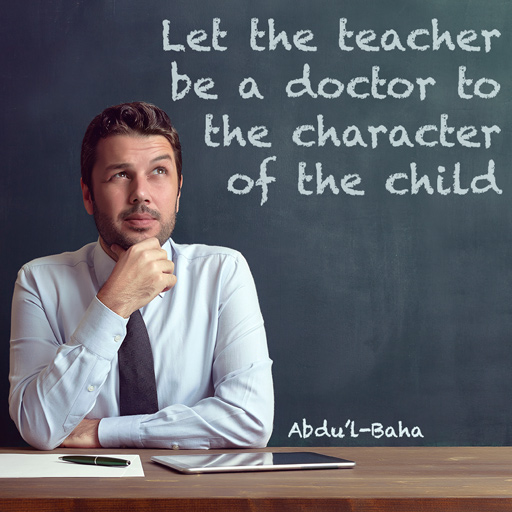

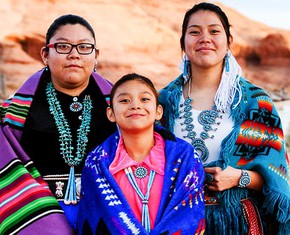

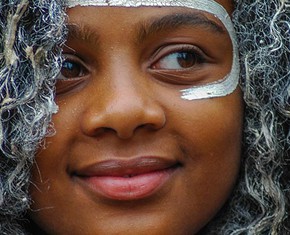









Comments
Sign in or create an account
Continue with Googleor